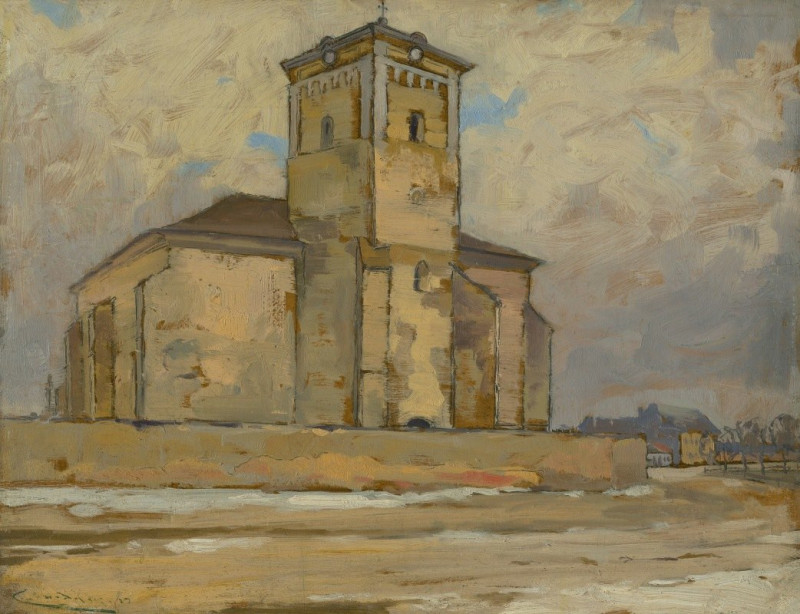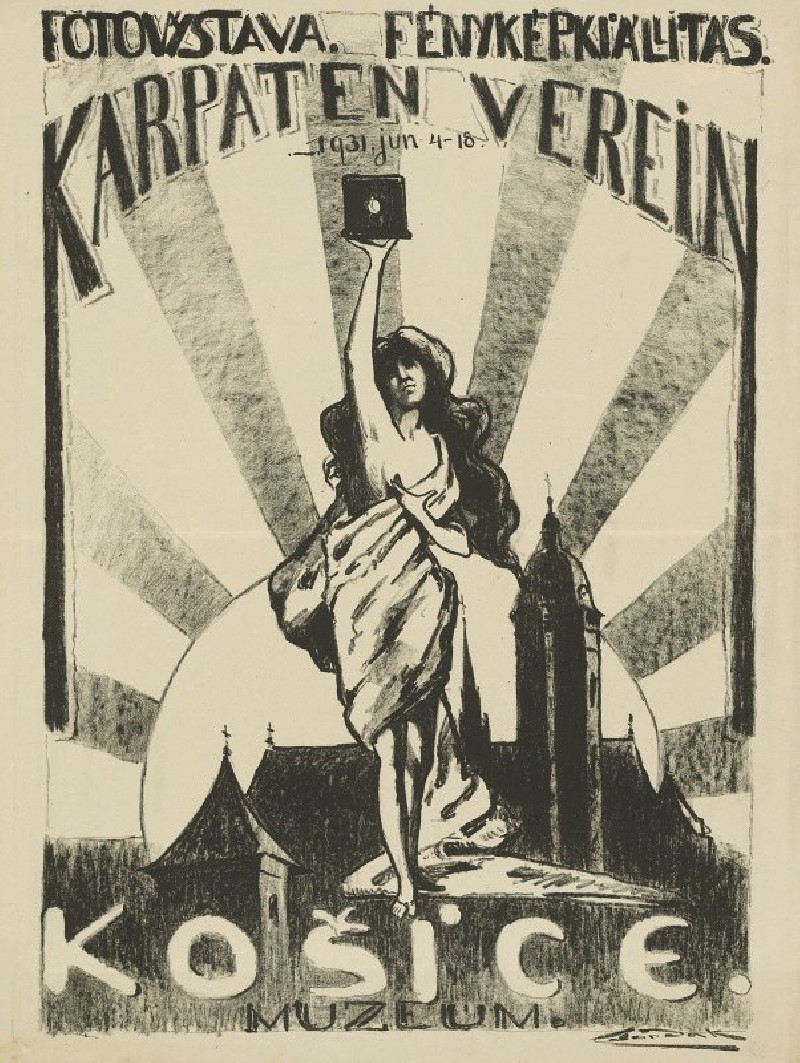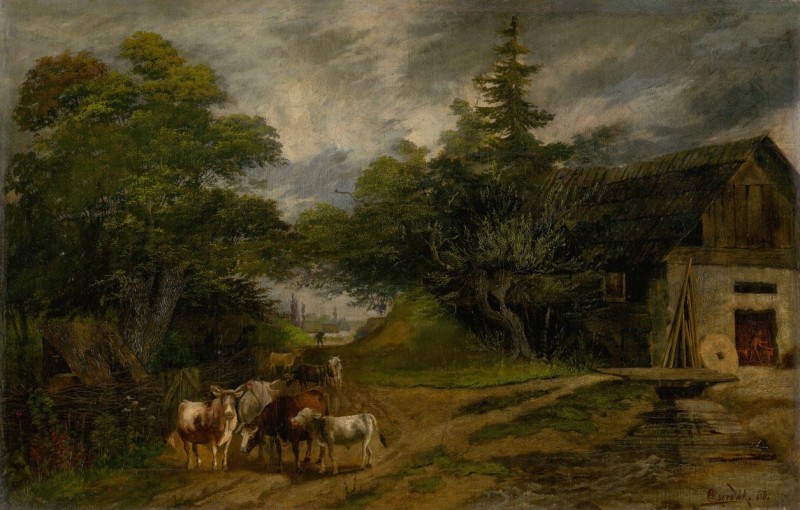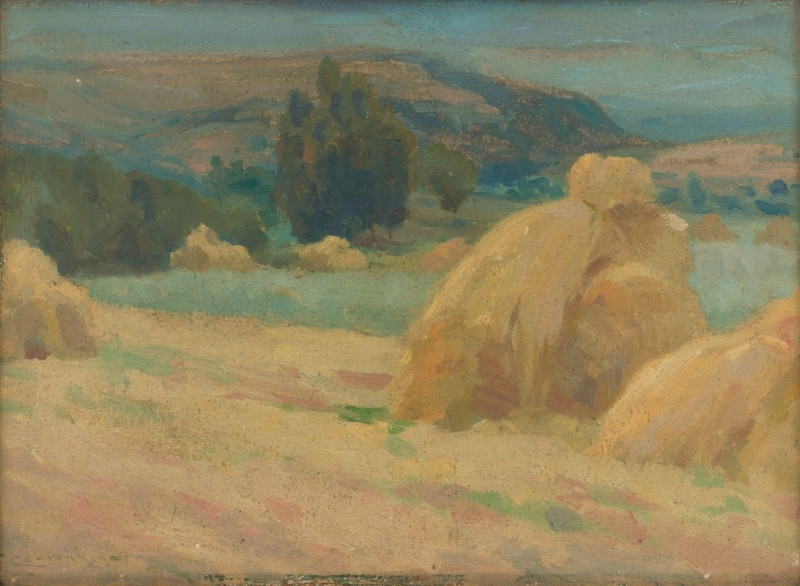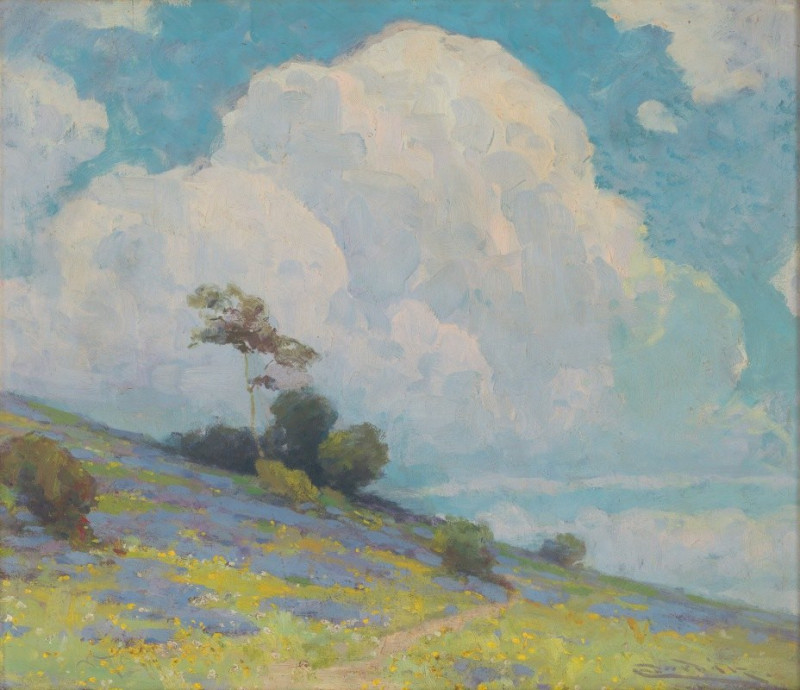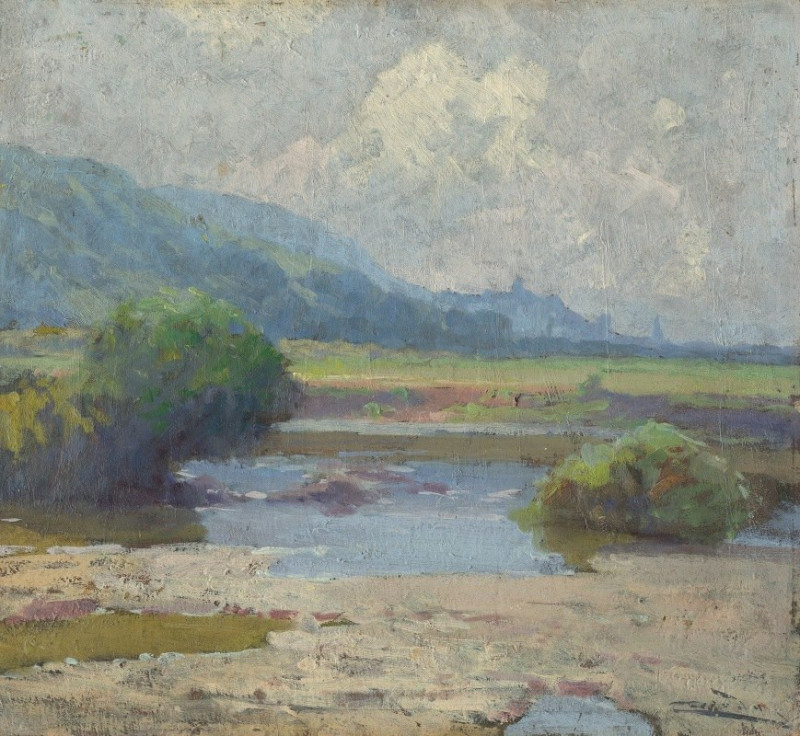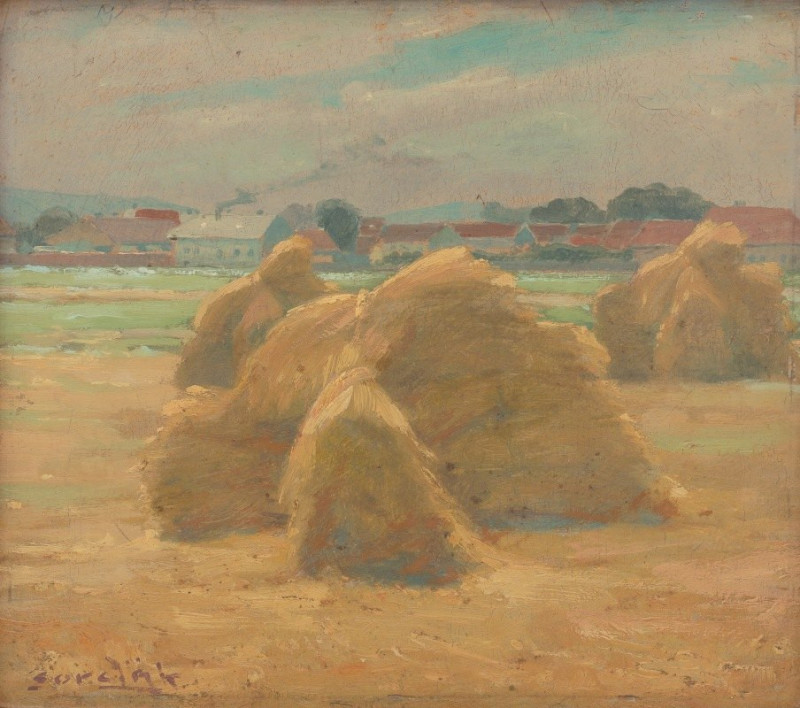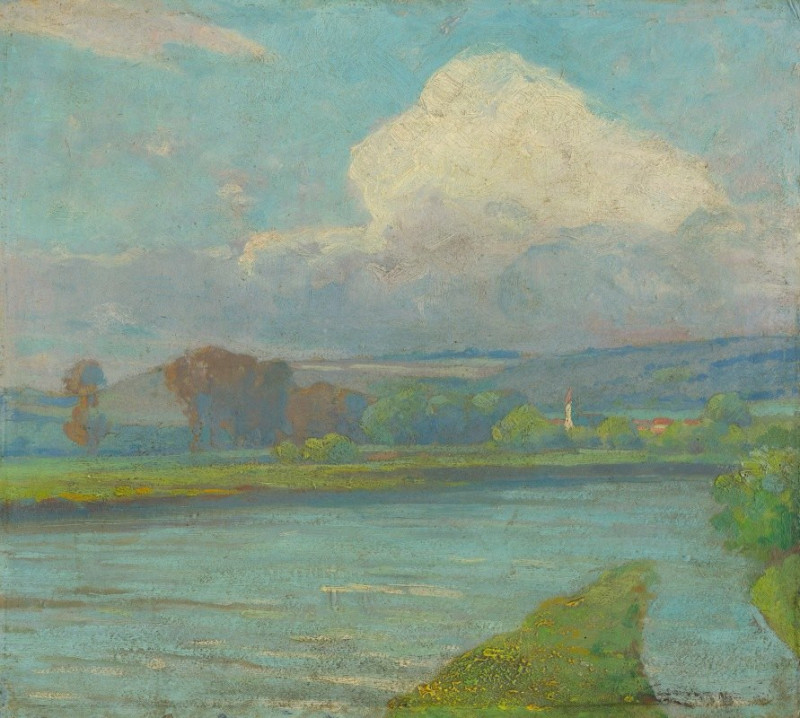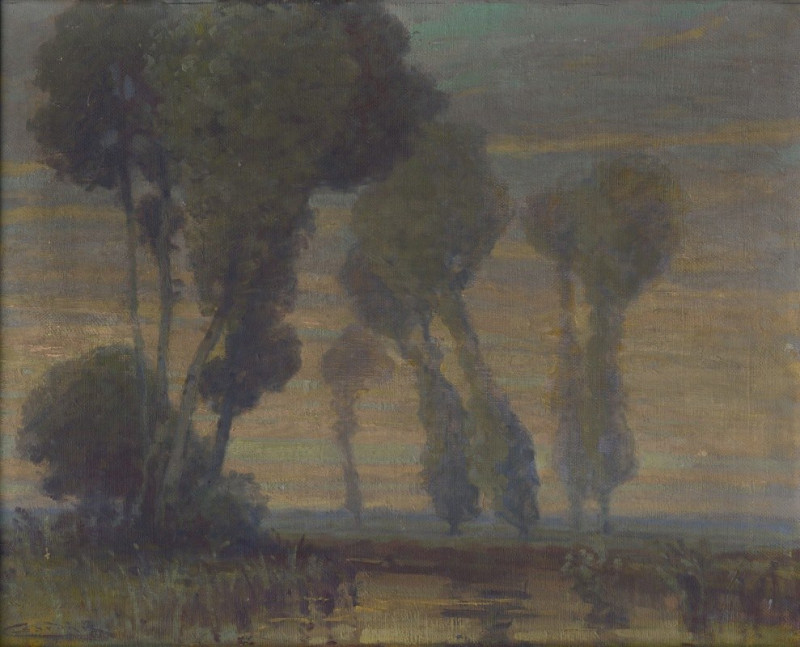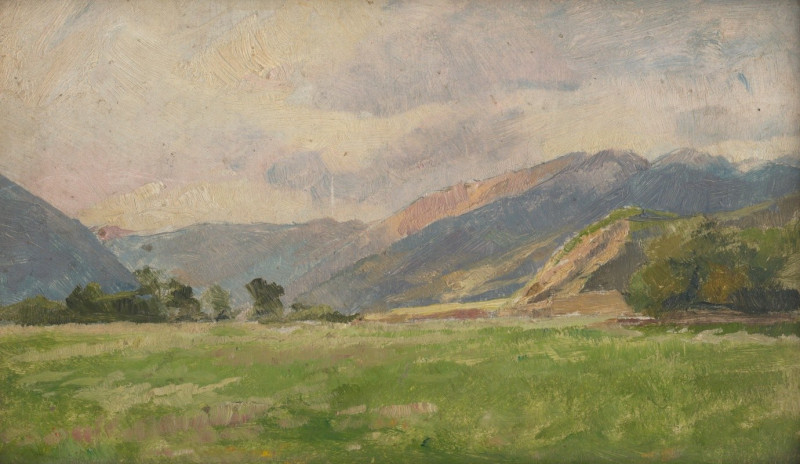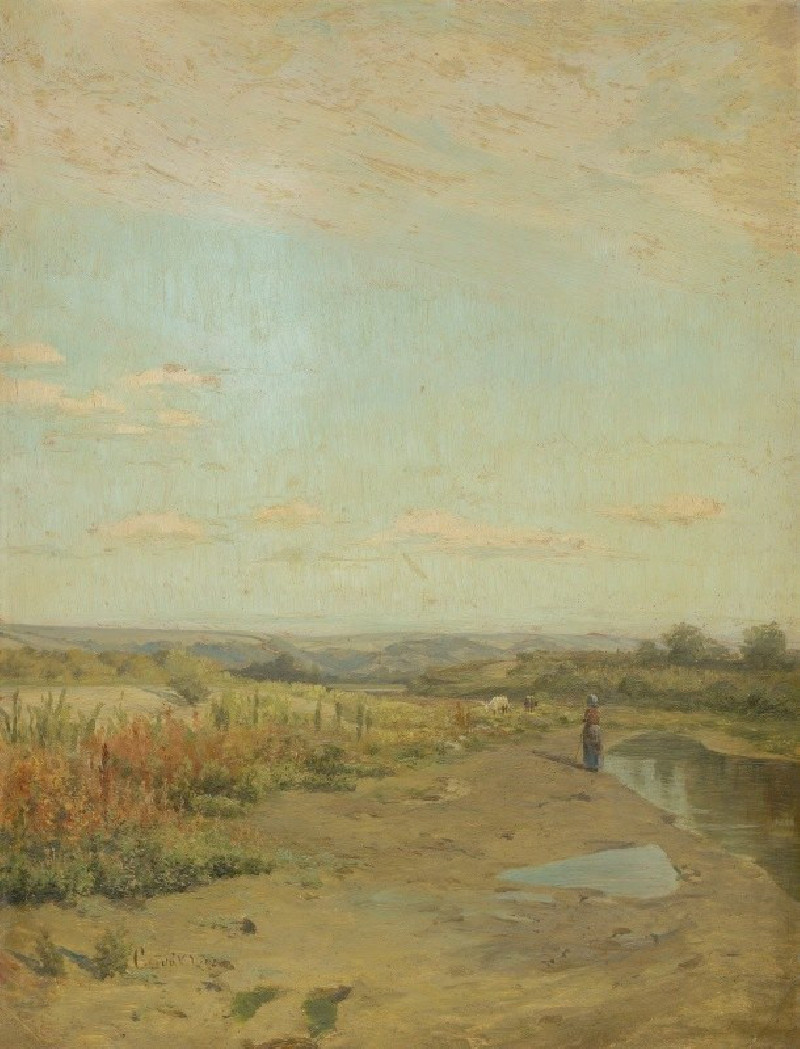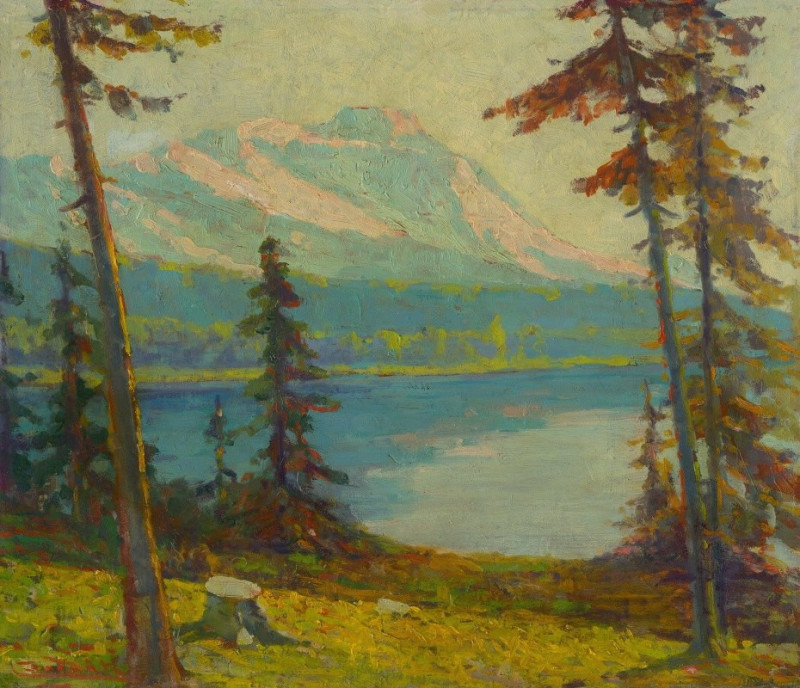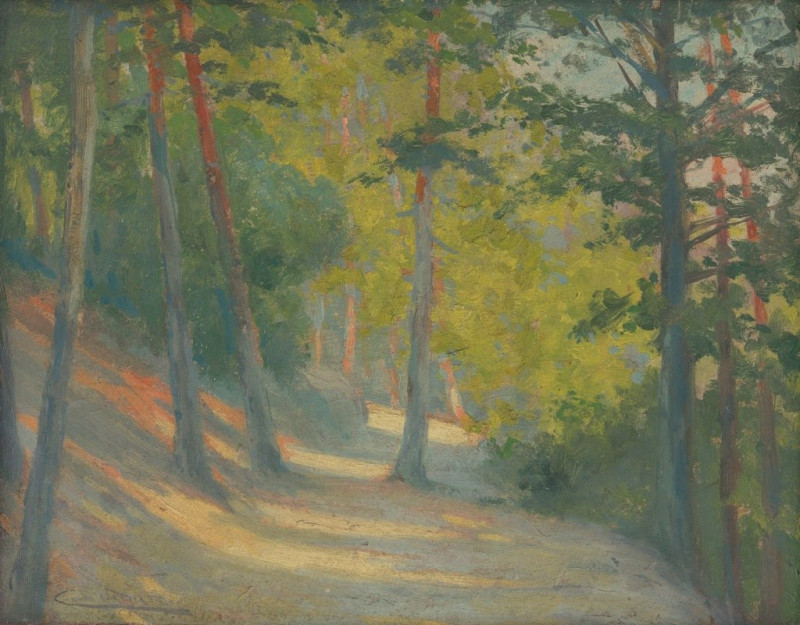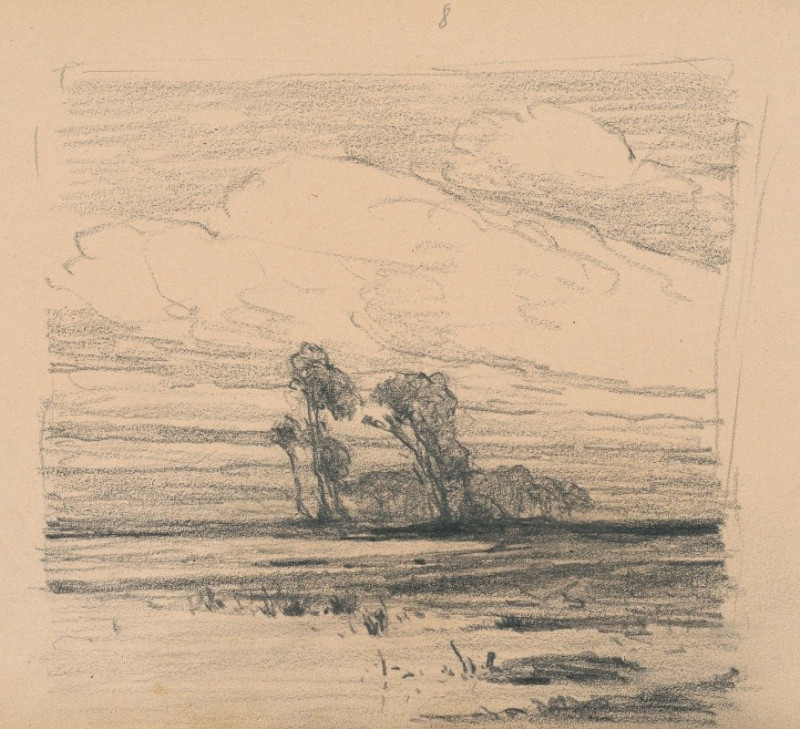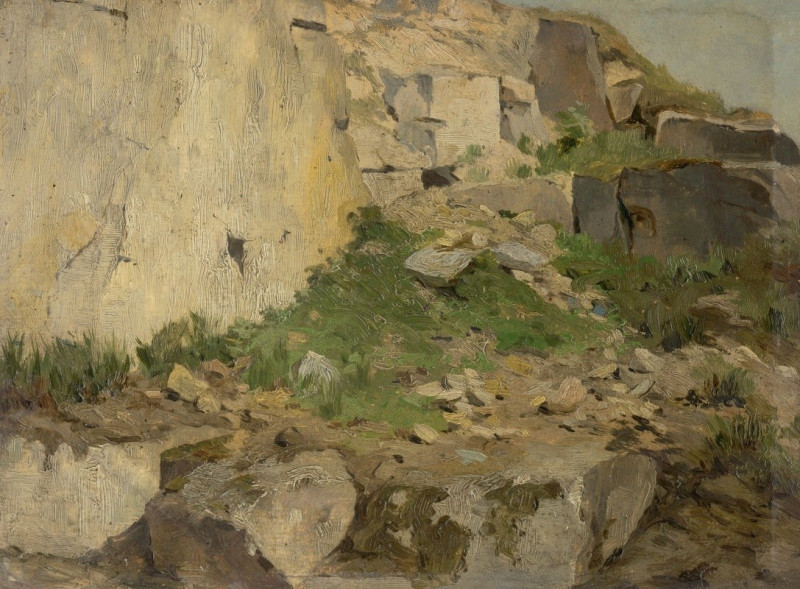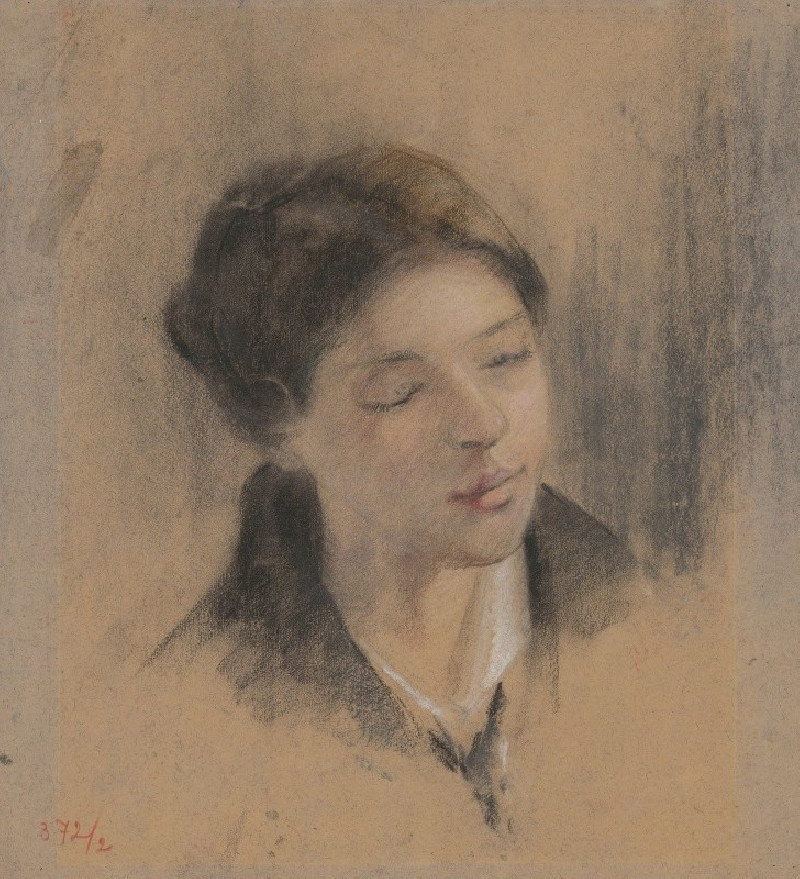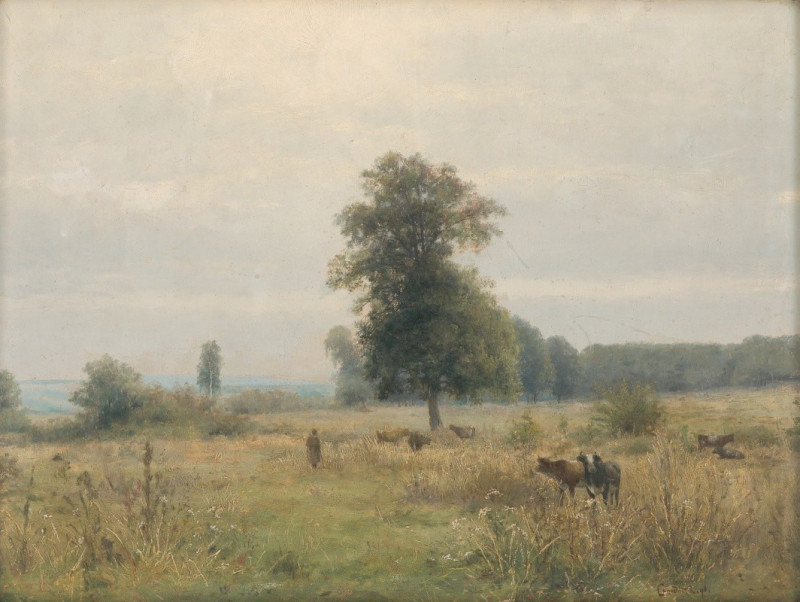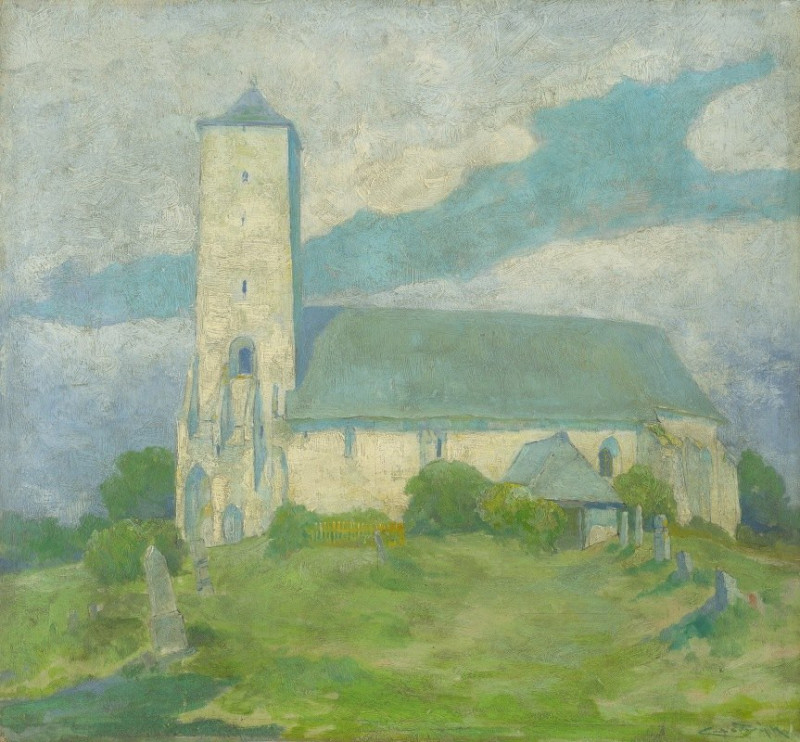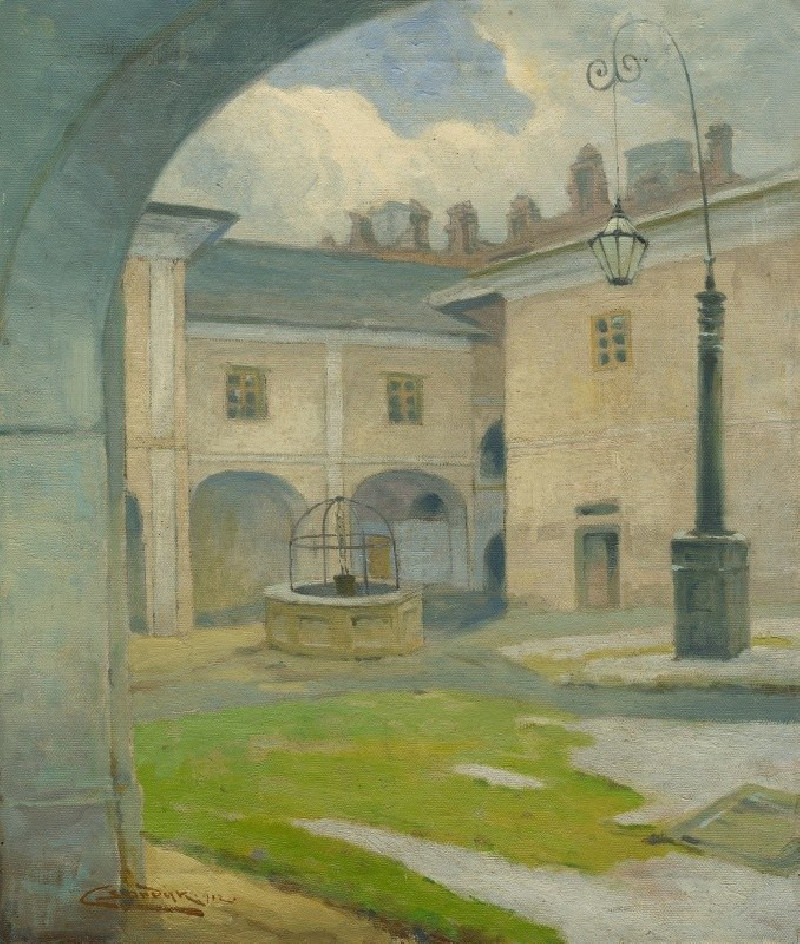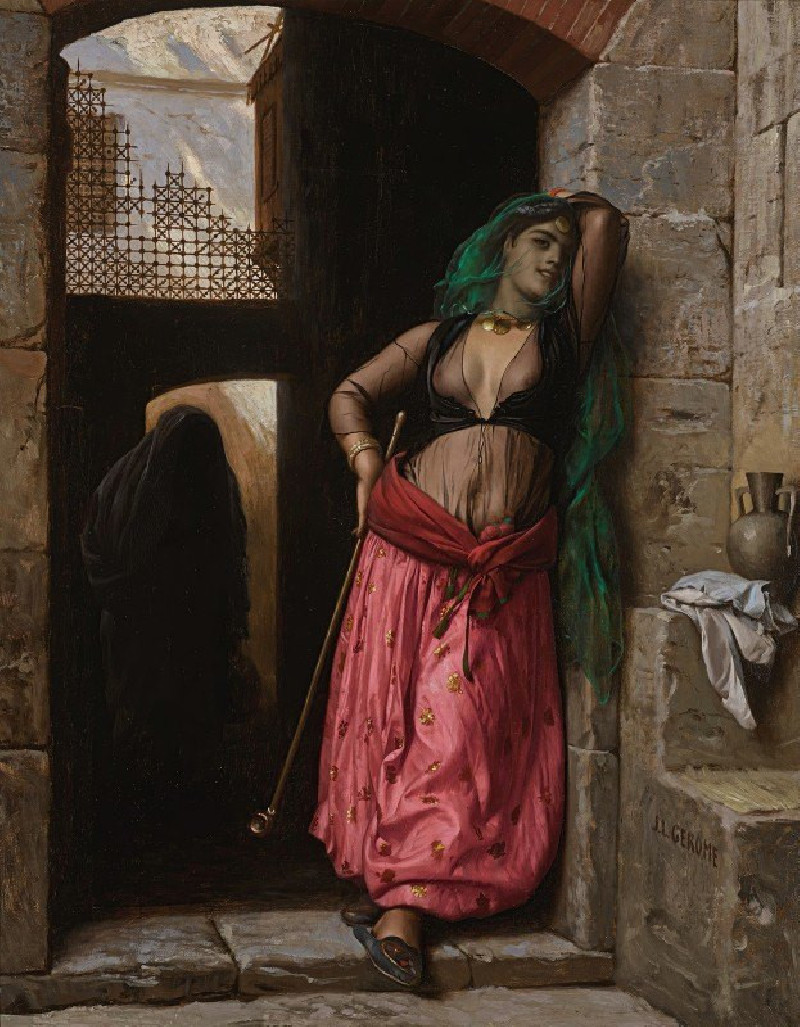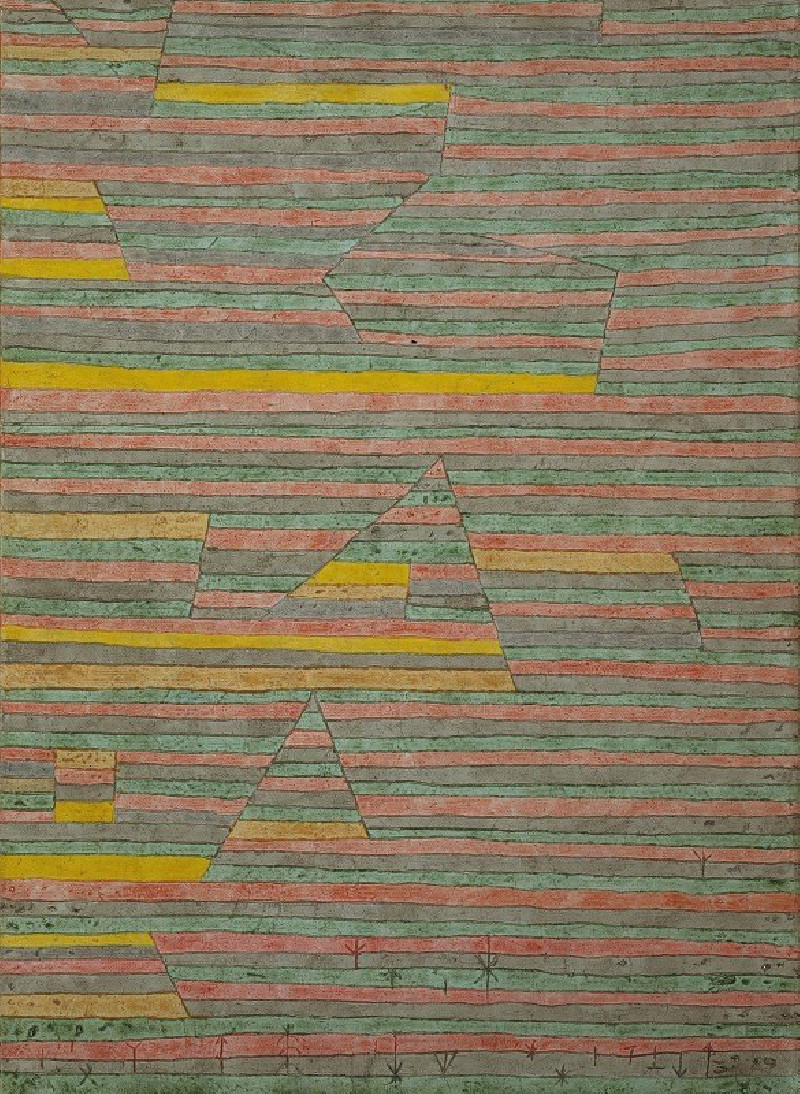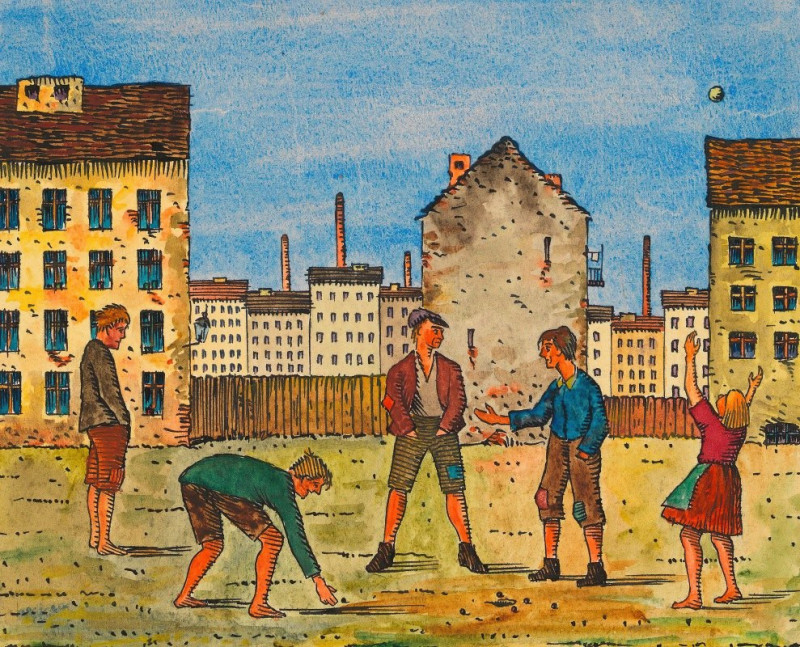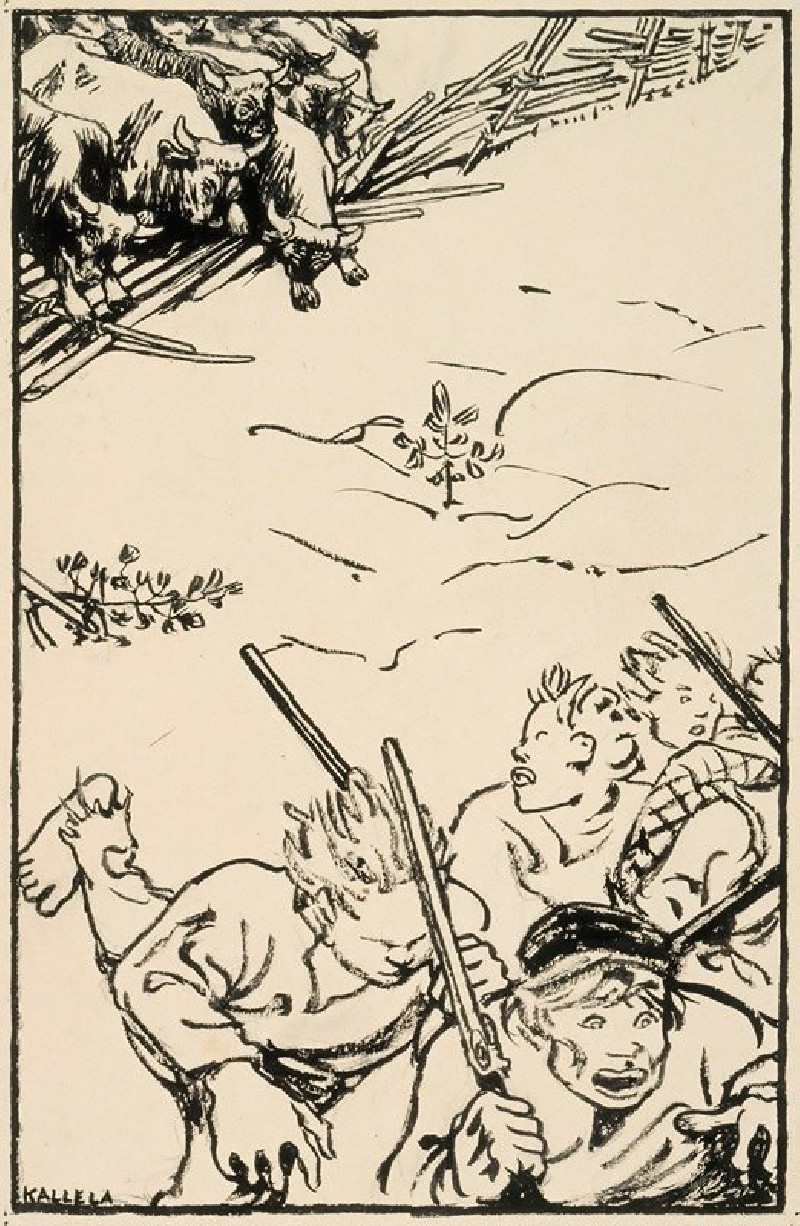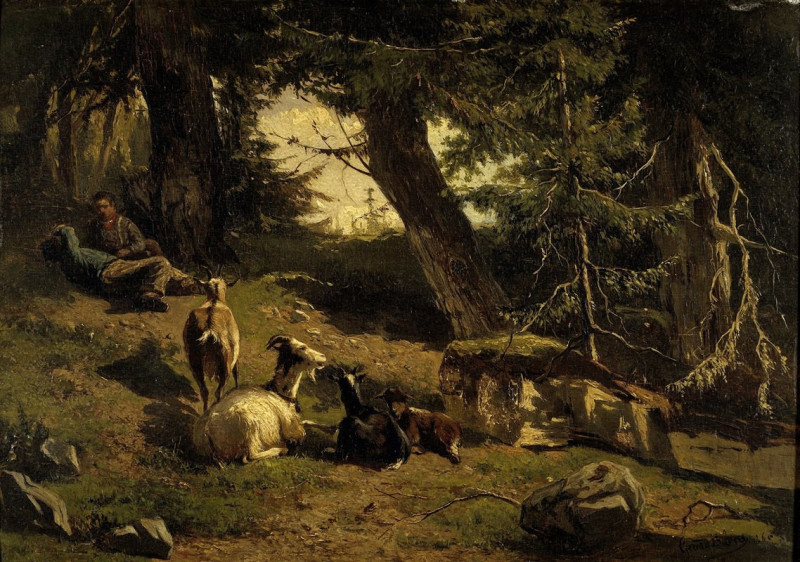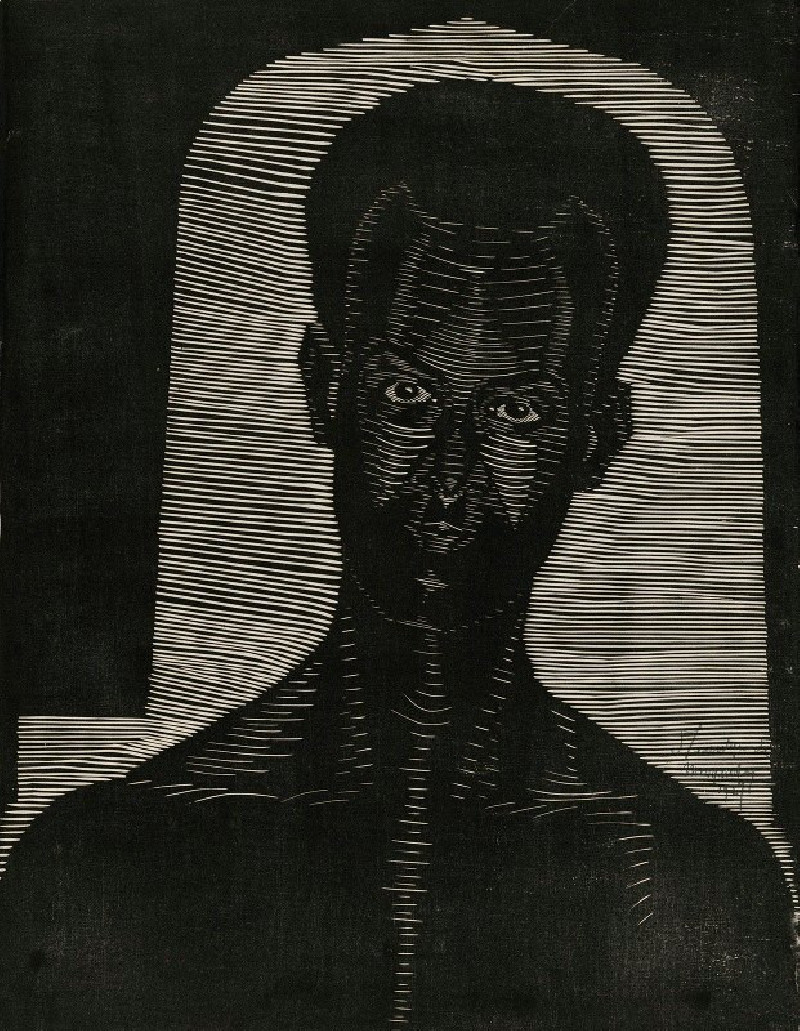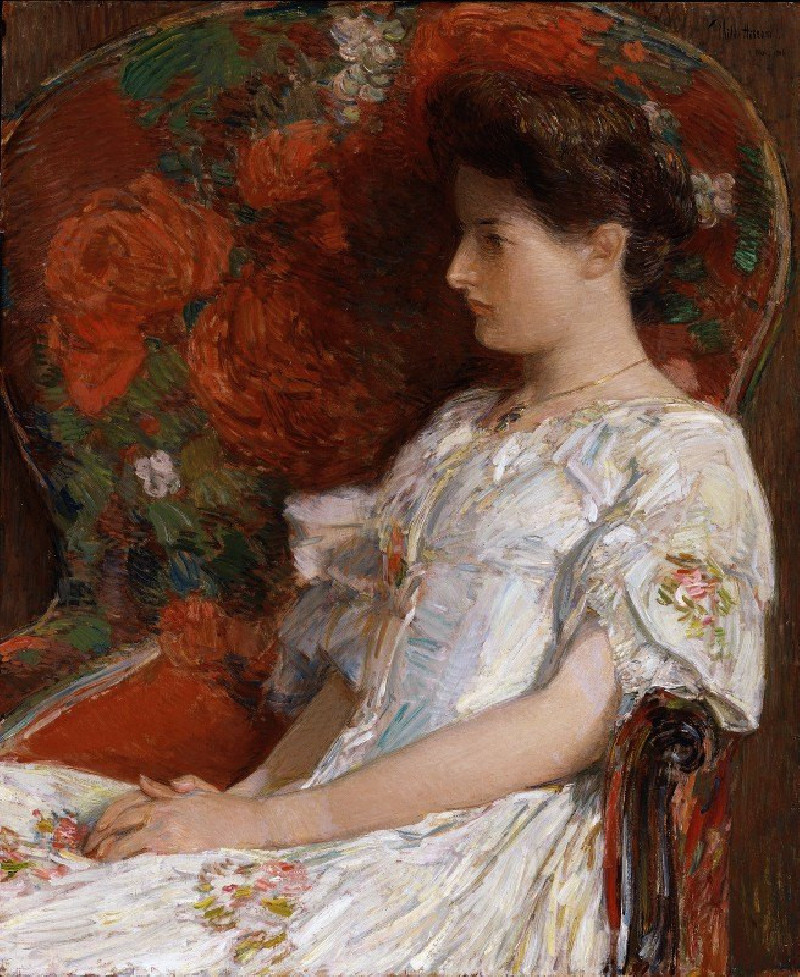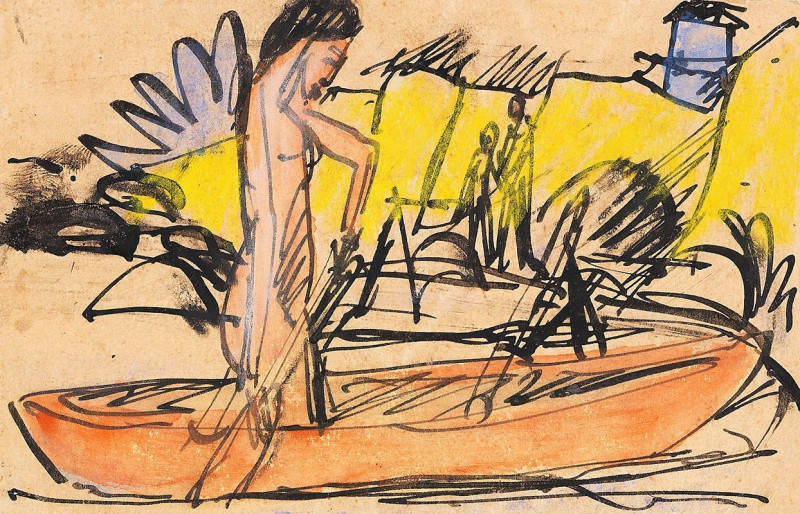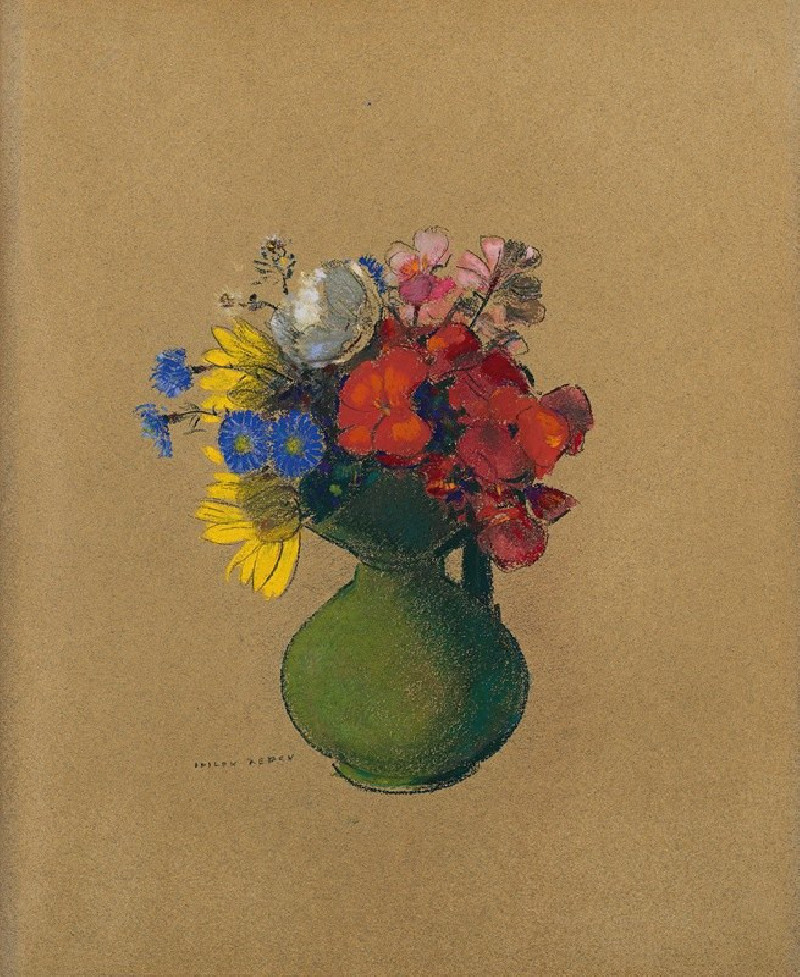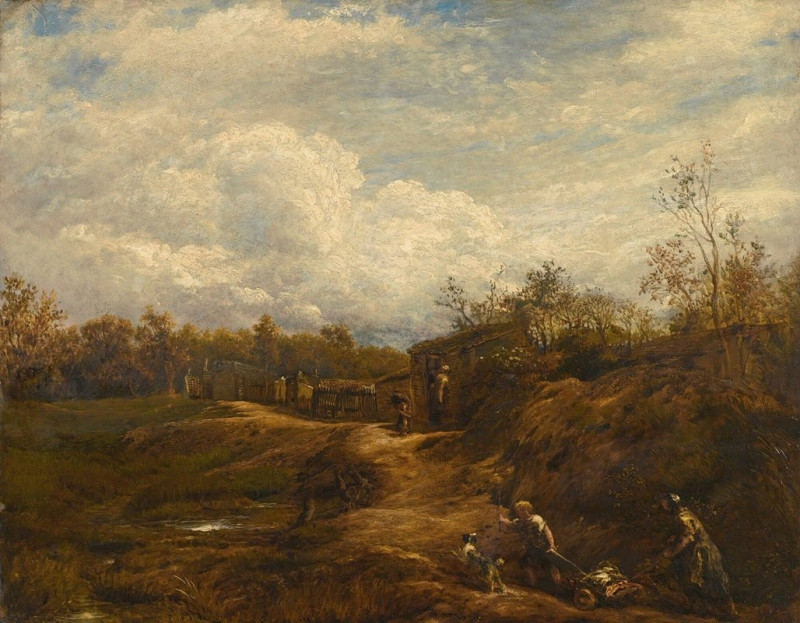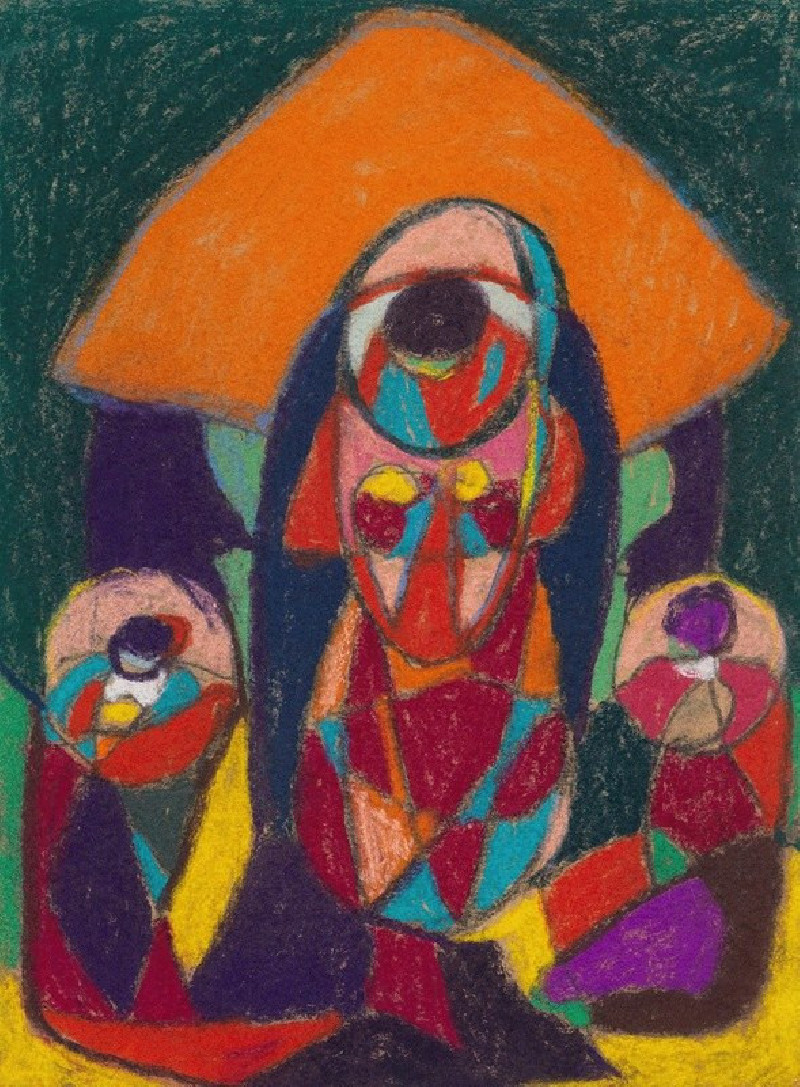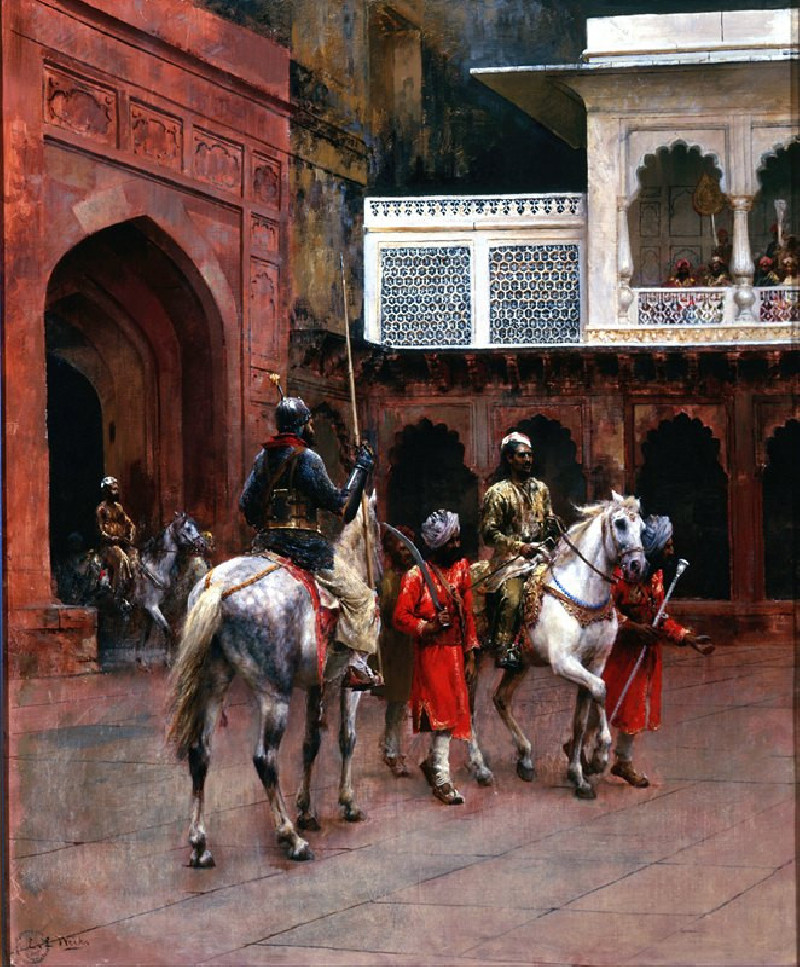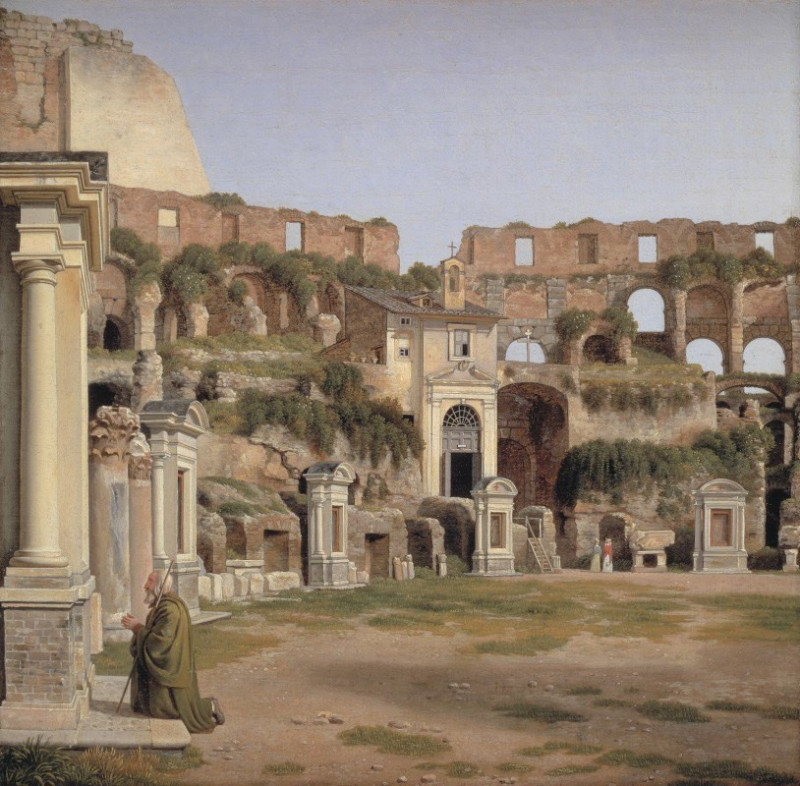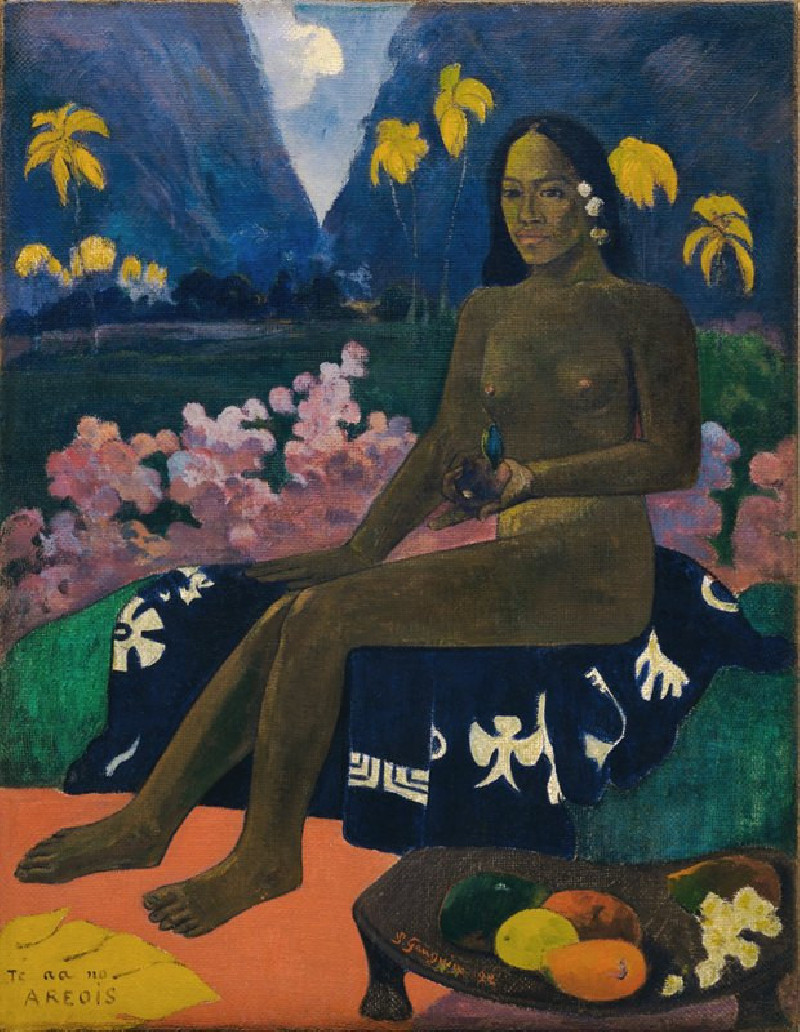Church in Moldova (1923)
Technique: Giclée quality print
Recommended by our customers
More about this artwork
Welcome to our exhibition featuring the serene yet evocative "Church in Moldova" (1923) by Ľudovít Čordák, an artist celebrated for his contributions to 20th-century Eastern European art. In this painting, Čordák captures a tranquil perspective of a robust church set against a dynamically brushed sky, suggesting both the timelessness and the everyday significance of this architectural beacon in a seemingly quiet village.The artwork showcases the church with a strong, almost sculptural form, its sandy and earthy tones suggesting the integration of the structure with its natural surroundings. The solid, blocky construction of the building contrasts with the fluid, almost whimsical strokes of the sky and the distant horizon, where faint outlines of more buildings and possibly trees are visible, indicating the presence of a small community.Čordák's handling of light and texture brings life to the scene, with shadows and highlights that cleverly define the church's physical features while also offering a glimpse into the materiality of its aged walls. This subtle interplay creates a sense of historical depth and geographical specificity, inviting viewers to ponder the stories housed within those walls over decades."Church in Moldova" not only represents a splendid example of Čordák's skill in landscape and architectural painting but also serves as a cultural bridge to the past, urging an appreciation for the serene and enduring spirit of places that continue to serve as community cornerstones.
Delivery
Returns
Ludwig Deutsch was an Austrian painter who settled in Paris and became a noted Orientalist artist.
Details of Ludwig Deutsch's life are obscure. He was born in Vienna in 1855 into a well-established Jewish family. His father Ignaz Deutsch was a financier at the Austrian court. He studied at the Vienna Academy of Fine Arts 1872–1875, then, in 1878, moved to Paris where he became strongly associated with Orientalism.

